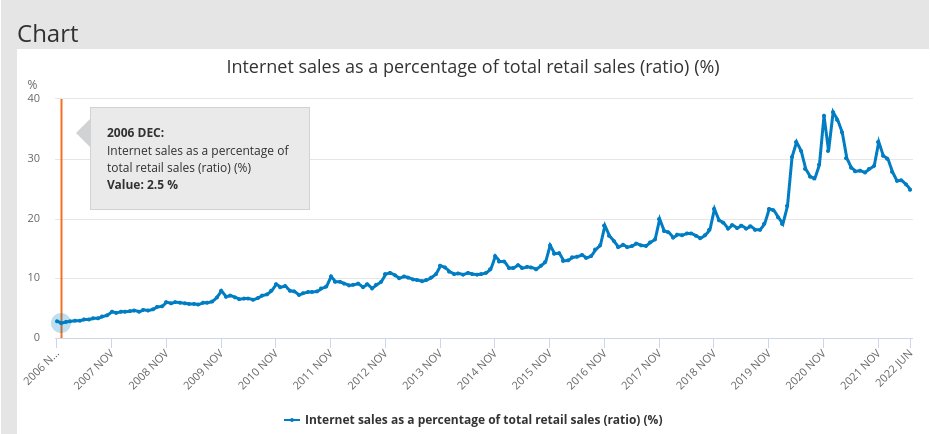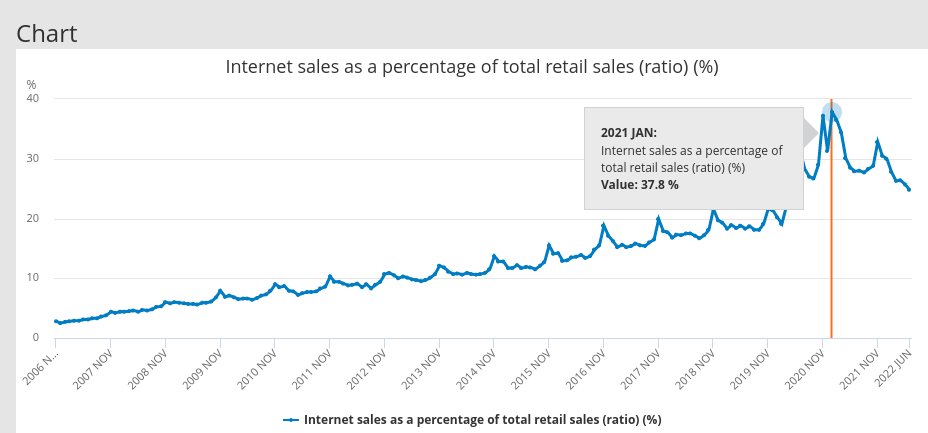
How to start an eCommerce business - part 1
Introduction
Perhaps you're thinking about starting an eCommerce business yourself, but your not sure what exactly is involved and whether or not it's a realistic propostion for everyone. At the moment this series is planned to be 7 parts long, and my goal over the next 7 weeks is to give you a genuine, honest take on the kind of time, money and effort required to start and operate a successful eCommerce store.


You might think I'm starting this series off on a negative with this first post, but actually I'm just being realistic. There's a few things you need to be clear about before you consider gong down this road. In this post I'll be looking at some key topics that can very easily make or break your store before you've even started.
Without these points in place, you'll probably find that you've given yourself a near insurmountable task, with progress feeling excruciatingly slow, and the real possibility that you may never actually reach your goal.
Must haves before you start
The first thing I'll say is never undertake the creation of an eCommerce store lightly. If you want to compete, and succeed it's going to require significant investment in time, effort, and money. In today's market, any area you decide to sell in will almost definitely prove to be highly competitive with stores and sites that already very well established.
The main thing to realise is that regardless of the actual creation of your store, however good you feel it is, and however much time and money has been spent on it, you're still going to have to fight hard for your place in the market. In the same way as you'll certainly feel when your store is well established, none of your competitors are going to want to give up any of their market share to you. While it's unlikely they'll attempt to directly undermine your business, they certainly won't help you, and will instead do everything they can to keep their store in front of yours, and seen by the customer.
Ultimately it is quite a hostile market, but it's that way for good reason. When you do manage to push through to see the sales start coming in and your store gets established as a strong customer option, the rewards for your time and effort can be considerable. Selling of any kind, and how it's actually done is driven almost entirely by consumer demand, so to stamp your mark in your particular field, you have to give the customer what they want, and do it better than the competition. It's a tried and trusted approach, but even if you're doing everything right, don't expect quick results.
I've run my own business for well over a decade now with heavy involvement in many different eCommerce stores, and something I learned very early on is that no one is waiting for your amazing new business to suddenly appear. You're always going to be the one who understands your own business most completely, and always going to be the one with the most invested interest. That doesn't mean that other people can't come to love your brand and what you offer, it just means that you've got to convince them it's what they need.
So here are some headline points you need to carefully consider before starting your own eCommerce store.
More than just you
Back in the early days of eCommerce it was certainly true that you could create and operate a successful store on your own. The reality today though is that this is just not the case anymore, and hasn't been for quite a few years. Why was it possible before? Simply because the level of competition was so much lower. Over time competition grew as more people took advantage of the possibilities eCommerce, and customer expectations also grew in proportion.


Today we're are at the point where customer expectation, a key metric in whether or not a store is likely to succeed, is at a level which is simply impossible to achieve on your own. This is across the entire process of both creating and operating a store. So if you're planning to launch and operate your store solo, my advice would be to read the rest of this series, and then carefully consider if you still think it's a good approach.
Money
Starting and operating an eCommerce store takes significant investment if you want you make a success of it. eCommerce frameworks like Shopify and BigCommerce can make the propostition of starting your own store appear very accessible, and cost effective. And yes you can create a store for pretty minimal cost using a SaaS option like this, but whatever framework you choose, a store will never succeed unless it sees significant investment across it's development, design and usability, and marketing and sales.
My recent blog post looked at the announcement from Shopify that they were cutting 1000 jobs, or 10% of their entire workforce due to reduced sales after the pandemic. This clearly shows just how many people tried to take advantage of the massive boost in internet sales triggered by covid. The fact that Shopify are now cutting so many jobs shows that even in a time of hugely increased opportunity, many realised that running a successful eCommerce store was in fact hugely challenging. My guess is that most of these stores saw very little monetary investment.


In terms of the actual budget you need, it does differ from store to store, however if you're thinking along the lines of £100's, then it's very unlikely you'll get an end result you're happy with. If it's £1,000's you'll be able to get a basic store up and running, but will likely need to cut quite a few corners, and progress post launch could well feel pretty slow. A budget in the £10,000's is much more realistic and should get you a solidly built store, with a good team to run it.
Time
Even creating your eCommerce store will take a great deal of time. It's not something that can be done in a few days, or even a few weeks, you're much more likely to be looking at months. This is particularly the case when you consider the fact that there will be many more systems involved, external to just your eCommerce framework that need to be in place for the proper operation of your store.
Even when you've created and launched your store, there are still many moving parts, just in terms of personnel required to successfully manage your sales pipelines and get orders to customers. All of this takes time to put in place, and operate, even if you're just taking the role of eCommerce manager and overseeing it all.
The additional consideration here of course is that even in the first months after the store launches, you won't have built that customer base and so will have gone through the conception, design, build, launch, and initial operation of the store without earning more than pennies. Realistically it will probably be a year or two before you turn a profit from the initial store expenditure. So you need to ensure that your budget is sufficient to allow the required time to be spent without seeing any return on your investment.
Resilience
Near the start of this post I said that no-one is going to be waiting for your amazing new business to launch, which is true. And when you try to tell people about your great new store and product offering, you'll find that unfortunately some people will be pretty vocal about the fact they're just not interested.
In the B2B space you'll find that people will almost always be polite and courteous, as whatever the situation, burning bridges in the business world is never a good move. In the B2C space however people can sometimes be more openly offensive about what you're offering as they have nothing really to lose. Just leave this kind of feedback at the door and carry on with something more productive. Resilience helps you keep your eyes on the goal and continue to push through regardless of whatever or whoever around you might be trying to slow your progress.
Conclusion
If some of the realities in this blog post makes starting an eCommerce store feel like an unachievable task, then maybe it's not the right path for you. If however you read this and feel like yes it would be a challenge, but one you would actually relish then you've probably got what it takes to find success and will want to check out the rest of this series. In the coming posts, we'll be looking at areas like validating your business idea, getting the right team around you, and building and operating your eCommerce store to achieve success.
If you need a quality eCommerce developer for the store idea you've got, then we list Magento, Shopify, BigCommerce, WooCommerce, Shopware and OpenCart developers right here on Developer Connection. You can connect with them instantly by just taking a few minutes to tell us about your project.
Thanks for reading, and I'll see you next week for part two!





